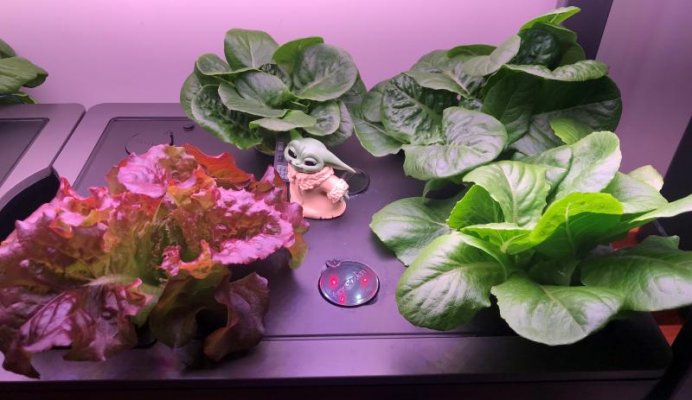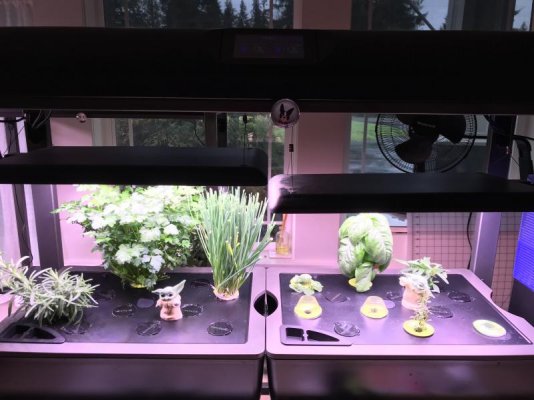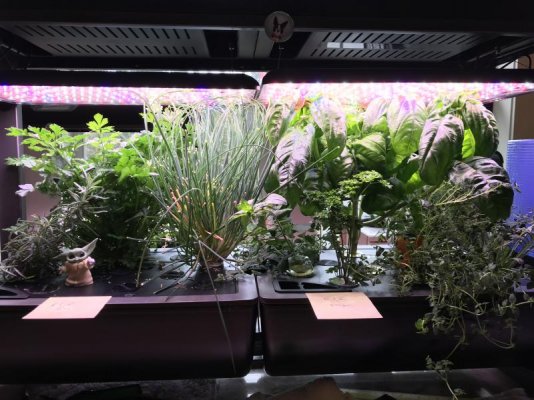You are using an out of date browser. It may not display this or other websites correctly.
You should upgrade or use an alternative browser.
You should upgrade or use an alternative browser.
Hepatitis cases tied to some strawberries
- Thread starter taxlady
- Start date
The friendliest place on the web for anyone that enjoys cooking.
If you have answers, please help by responding to the unanswered posts.
If you have answers, please help by responding to the unanswered posts.
GinnyPNW
Master Chef
Yikes! I always read labels and stick with U.S. and Canadian grown produce!
In a nutshell...
The agencies said the strawberries were purchased between March 5 and April 25. They were sold at various U.S. retailers, including Aldi, Kroger, Safeway, Walmart and Trader Joe's. In Canada, the affected strawberries were sold between March 5-9 at Co-op stores in Alberta and Saskatchewan.
The potentially affected strawberries are past their shelf life, but health officials say consumers who purchased them and froze them to eat later should throw them away
The agencies said the strawberries were purchased between March 5 and April 25. They were sold at various U.S. retailers, including Aldi, Kroger, Safeway, Walmart and Trader Joe's. In Canada, the affected strawberries were sold between March 5-9 at Co-op stores in Alberta and Saskatchewan.
The potentially affected strawberries are past their shelf life, but health officials say consumers who purchased them and froze them to eat later should throw them away
GotGarlic
Chef Extraordinaire
U.S. and Canadian-grown produce can be contaminated, too.Yikes! I always read labels and stick with U.S. and Canadian grown produce!
GinnyPNW
Master Chef
U.S. and Canadian-grown produce can be contaminated, too.
Agreed, but I seem to have better luck or fewer incidents of issues with U.S. and Canadian grown. Have you ever read about water used for irrigation in "other" countries?
GotGarlic
Chef Extraordinaire
No, but romaine from farms in California has been a source of foodborne illness several times over the past several years. Anything grown outside can be pooped on by birds and animals.Agreed, but I seem to have better luck or fewer incidents of issues with U.S. and Canadian grown. Have you ever read about water used for irrigation in "other" countries?
GinnyPNW
Master Chef
GotGarlic
Chef Extraordinaire
Nice. I wish I had space for a setup like that. I'd grow basil, too [emoji39]
GinnyPNW
Master Chef
GotGarlic
Chef Extraordinaire
Wow. Love your little Yoda [emoji16]
Marlingardener
Sous Chef
Here in Texas, HEB grocery has recalled strawberries. I try to stick with my own home-grown vegetables, but things that don't grow well here, like celery, I have to buy from California or other states. Many fruits just don't like our climate, and I'll buy berries but not now!
I remember the Romaine (or something) e-coli scare from California a few years back. It was in the water, but is that in the plant or on the surface?
So I've always wondered... are these germs/bacteria/nasties on the surface of the items? Can they not be washed?
So I've always wondered... are these germs/bacteria/nasties on the surface of the items? Can they not be washed?
GinnyPNW
Master Chef
I remember the Romaine (or something) e-coli scare from California a few years back. It was in the water, but is that in the plant or on the surface?
So I've always wondered... are these germs/bacteria/nasties on the surface of the items? Can they not be washed?
Apparently not. Or at least, not completely. I did an internet search. Here's one link: https://www.businessinsider.com/can-you-wash-e-coli-off-romaine-lettuce-2018-4?op=1
Marlingardener
Sous Chef
In the case of the Romaine lettuce being contaminated, it was because the growing field was downhill from a cow pasture, and the cow manure contaminated the water which ran down to the lettuce field. The e-coli was definitely in the vegetable.
Moral of this story--plant your garden uphill from the cow pasture.
Moral of this story--plant your garden uphill from the cow pasture.
GotGarlic
Chef Extraordinaire
It wasn't downhill - it was across the valley and apparently carried by irrigation water, although it's not certain that the exact way the romaine was contaminated has been identified.In the case of the Romaine lettuce being contaminated, it was because the growing field was downhill from a cow pasture, and the cow manure contaminated the water which ran down to the lettuce field. The e-coli was definitely in the vegetable.
Moral of this story--plant your garden uphill from the cow pasture.
That was in 2018 and again in 2021. The FDA has been testing the lettuce before it's sold, so hopefully they're getting a handle on it.
https://www.npr.org/sections/thesal...aminated-lettuce-outbreak-to-a-cattle-feedlot
I'm a little surprised that all the articles still say it is only a theory and that it can not be proven positive. They seem to agree it came from the cattle but not how it did. 
GotGarlic
Chef Extraordinaire
That's the thing about science - it's not usually as certain as we would like it to be.
I think I disagree...
"A hypothesis is a tentative explanation of an observation that can be tested. It acts as a starting point for further explanation. Theory, on the other hand, is an explanation of some aspect of the natural world that’s well-justified by facts, tested hypotheses, and laws."
The hypothesis comes first, then the theory.
"A hypothesis is a tentative explanation of an observation that can be tested. It acts as a starting point for further explanation. Theory, on the other hand, is an explanation of some aspect of the natural world that’s well-justified by facts, tested hypotheses, and laws."
The hypothesis comes first, then the theory.
I'm a little surprised that all the articles still say it is only a theory and that it can not be proven positive. They seem to agree it came from the cattle but not how it did.
I think I disagree...
"A hypothesis is a tentative explanation of an observation that can be tested. It acts as a starting point for further explanation. Theory, on the other hand, is an explanation of some aspect of the natural world that’s well-justified by facts, tested hypotheses, and laws."
The hypothesis comes first, then the theory.
Yes, hypothesis comes first. That's why the info on how the contamination got onto the lettuce is still only a couple of hypotheses. They don't know enough yet to have a theory.
But, in response to the first quote in this thread, I'm not surprised that lots of articles use the term theory incorrectly, when they should say hypothesis. They do this all the time. When the discussion is about science or what scientists are doing, they need to use the terms scientifically or specify that they are not doing so.
Similar threads
- Replies
- 0
- Views
- 420
- Replies
- 0
- Views
- 2K



